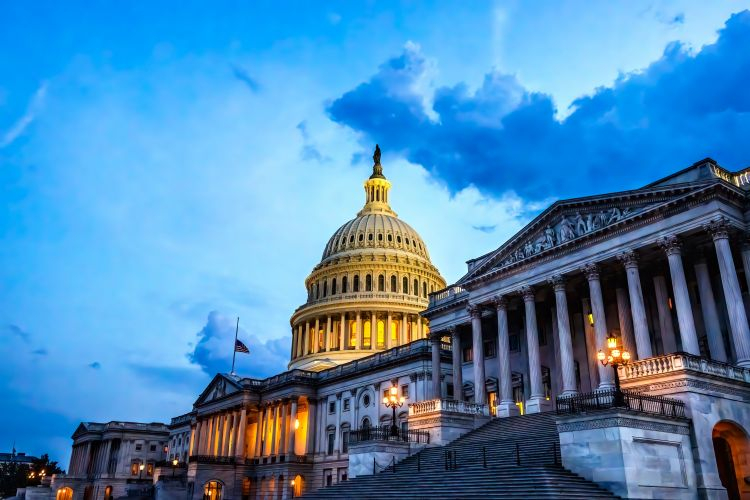Thought Leadership E-Articles |
Estate and Gift Tax Changes Ahead

A recent federal law is changing the way families approach long-term planning. The One Big Beautiful Bill Act (OBBBA), signed on July 4, 2025, raises the federal estate and gift tax exemption to $15 million per person, or $30 million for a married couple, starting in 2026. The exemption will be adjusted for inflation beginning in 2027.
Prior to the new law, the exemption was set to decrease at the end of 2025. That deadline prompted many families to accelerate planning and consider large transfers before year-end. With the exemption now set at a higher permanent level, new planning options may be available. To help clients, prospects, and others, Dermody, Burke & Brown, CPAs has summarized the key details below.
Background on the Estate and Gift Tax Exemption
The estate and gift tax exemption allows individuals to transfer wealth during life or at death without paying federal estate or gift taxes, up to a set lifetime limit. For 2025, the exemption is $13.99 million per person, or $27.98 million for married couples. This amount was established under the Tax Cuts and Jobs Act (TCJA) in 2017 and was scheduled to sunset after 2025.
Without new legislation, the exemption would have returned to pre-2018 levels. Many estate plans were built around that expiration date, with families using the higher exemption while it was available. OBBBA removes that deadline and establishes a permanent, higher exemption moving forward.
In any case, transfers that exceed the exemption are generally subject to federal estate or gift tax, with rates that can reach up to 40%. For individuals with estates above the threshold, these taxes can have a major impact on wealth transfer if not planned for in advance.
What Changed Under OBBA?
A provision in the One Big Beautiful Bill Act changes how the federal estate and gift tax exemption will work in the years ahead. Starting in 2026, the lifetime exemption for both estate and gift tax will rise to $15 million per person. For married couples, that means a combined exemption of $30 million. The law also includes inflation adjustments beginning in 2027, with 2025 as the base year.
This update replaces a rollback that had been scheduled under earlier law. Without the new legislation, the exemption would have dropped back to about $7 million per person. If the 2017 tax law had simply been extended, inflation adjustments would have placed the 2026 exemption near $14.3 million.
The generation-skipping transfer tax exemption will also rise to $15 million in 2026. It will follow the same indexing schedule and apply to gifts made to grandchildren or other beneficiaries in younger generations.
Now, there is more time for high-net-worth families to plan ahead.
Strategic Planning Considerations
The remainder of 2025 still offers important planning opportunities. For individuals considering gifts or other transfers this year, it is worth reviewing how current rules apply and how they may interact with long-term goals. Key points to consider:
The increased exemption is not retroactive. Transfers made in 2025 are subject to the current $13.99 million lifetime exemption. Gifts that exceed this amount may trigger gift tax.
The annual gift tax exclusion remains unchanged. In 2025, individuals can give up to $19,000 per recipient without using the lifetime exemption. Married couples may give up to $38,000 per recipient. This may be adjusted for inflation in 2026.
Annual gifts can be given to multiple recipients. This strategy is often used to gradually transfer wealth to children, grandchildren, or other family members over time, while preserving the lifetime exemption for future use.
Gifts above the annual limit reduce the lifetime exemption. Any amount over the exclusion limit must be reported to the IRS on Form 709.
Coordinating current and future gifts can help avoid unintended tax exposure. Individuals planning larger transfers in 2026 may want to confirm how 2025 gifts affect asset growth and future plans.
Business owners may want to revisit succession plans. With a higher exemption transferring shares in a closely held business could be more manageable. This may be the time to start mapping out ownership transitions to family members or key employees.
State-level estate taxes should also be considered. Several states impose separate estate tax systems with exemption amounts below the federal level. In those jurisdictions, proactive planning may still be needed even if the federal estate tax no longer applies.
Contact Us
OBBBA changes estate and gift tax thresholds and allows for more consistent long-term planning. Individuals and families may want to revisit estate plans to ensure they align with the updated exemption, reflect financial goals, and address both federal and state considerations. If you have questions about the information outlined above, or need assistance with another tax or accounting issue, Dermody, Burke & Brown, CPAs, can help. For additional information call 315-471-9171 or click here to contact us. We look forward to speaking with you soon.
